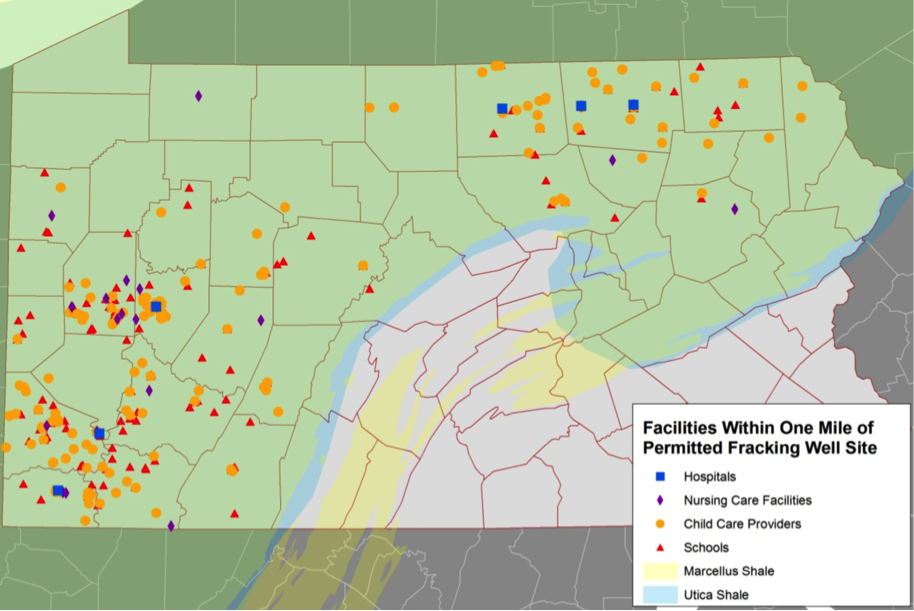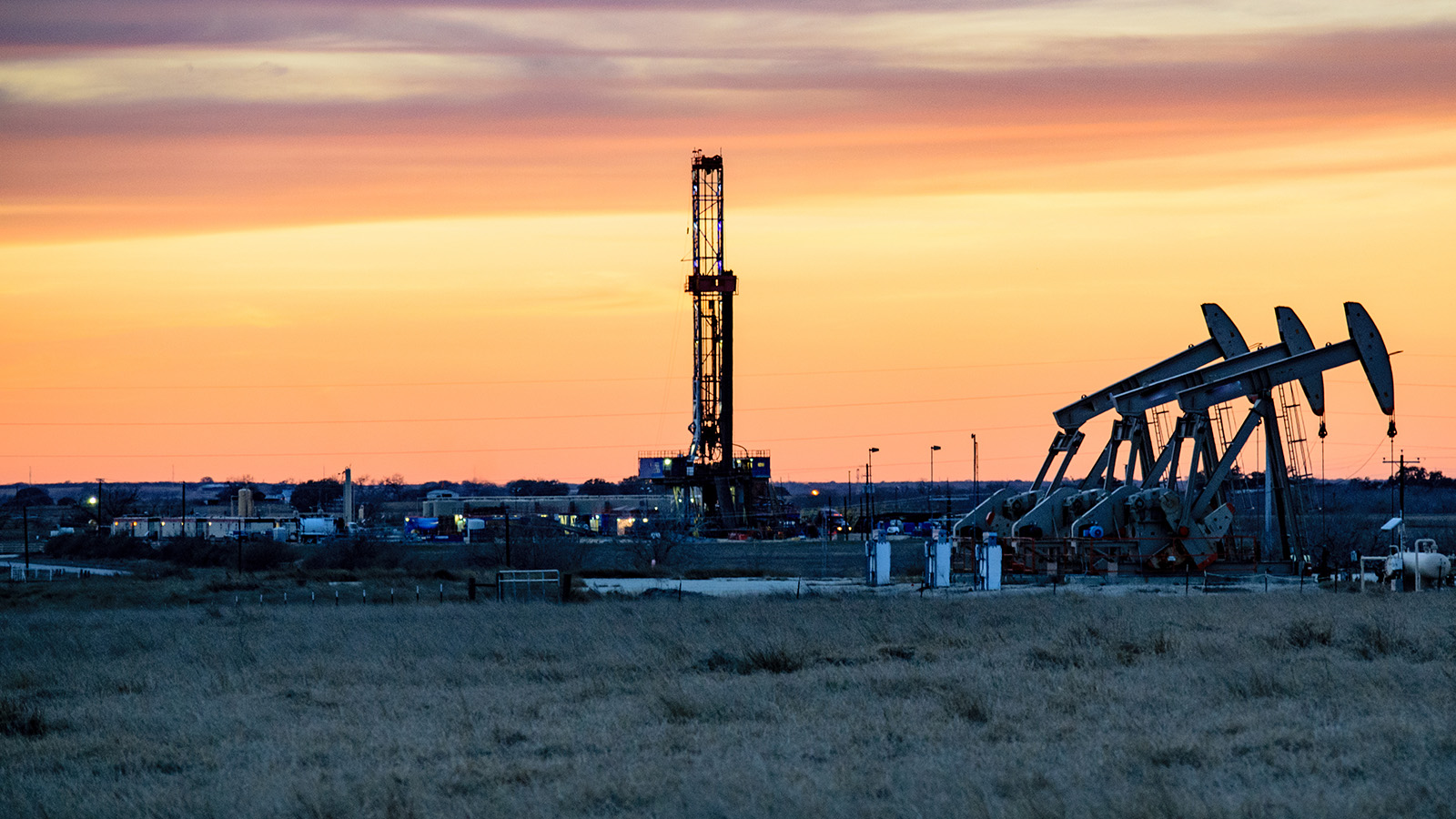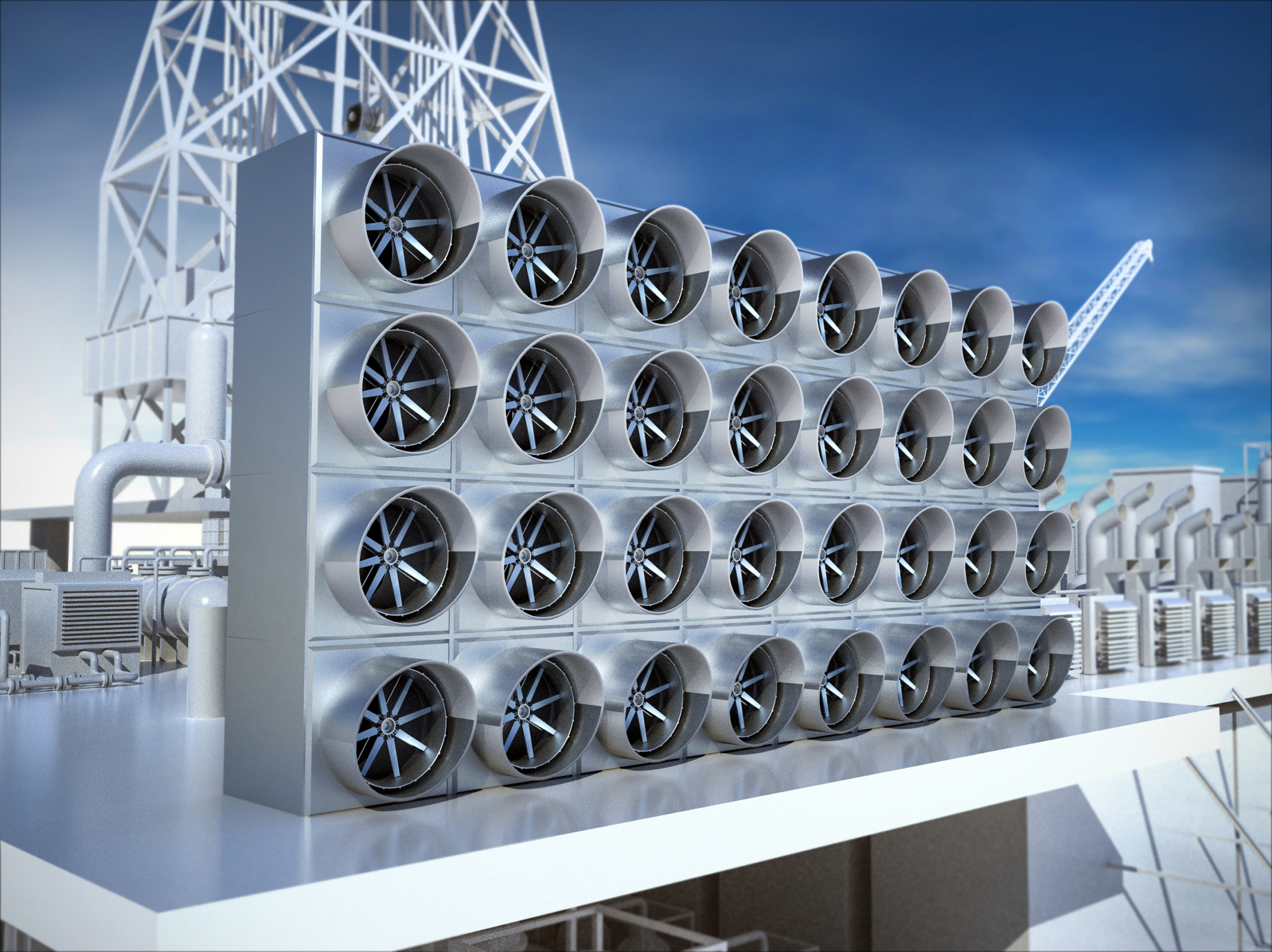Dangerous and Close
Fracking Near Pennsylvania's Most Vulnerable Residents
Drilling companies are fracking for shale gas in close proximity to many vulnerable Pennsylvanians. There are fracking operations within 1 mile of 166 schools, 165 child care providers, 21 nursing care providers and six hospitals.
Downloads
Using the extraction process known as hydraulic fracturing, gas companies are drilling near our communities, polluting our air and water, and risking the health of our children and other vulnerable populations. “Fracking” involves injecting water, sand and a mixture of chemicals at high pressures deep underground, breaking up rock formations to release natural gas. Blowouts, fires, and explosions can occur at well sites, and drilling and extraction can contaminate our air and water, putting the health and well-being of nearby citizens at risk. This is particularly true for Pennsylvania’s most vulnerable residents: infants, school children, the elderly and those with weakened immune systems.
Gas drilling companies are exploiting the resources found in the Marcellus and other shale formations that extend beneath much of Pennsylvania. Just since the start of 2007, gas companies have drilled more than 9,100 fracking wells in the state and permits have been issued for thousands more.
Drilling companies are fracking for shale gas in close proximity to many vulnerable Pennsylvanians.
- There are 166 schools, 165 child care providers, 21 nursing care providers and six hospitals within a one-mile radius of permitted fracking well sites. (See Figures ES-1 and ES-2.)
- Approximately 53,000 Pennsylvania children under the age of 10 and 41,000 seniors 75 years of age and older live within one mile of a permitted fracking well site.
- Across the state, there are 52 schools, 51 child care providers, two nursing care facilities and two hospitals within one mile of natural gas compressor stations, which produce hazardous air pollution while moving gas to markets.
- Between 2001 and March 2015, the Pennsylvania Department of Environmental Protection (PA DEP) recorded almost 5,200 violations of regulations intended to protect public safety and the environment at fracking sites. Many have occurred in close proximity to vulnerable Pennsylvanians, including:
- More than 220 violations at wells within one mile of a school;
- 180 violations within one mile of a child care provider;
- 28 violations within one mile of a nursing care facility; and
- 13 violations within one mile of a hospital.
Drillers have rapidly expanded fracking and gas extraction efforts.
- Between 2007 and May 2015, Pennsylvania issued more than 19,300 permits for fracking sites.
- There were approximately 5,900 more permitted fracking well sites (which can contain several individual wells) in Pennsylvania in May 2015 than there were in May 2013. There were approximately 2,400 more wells.
- The gas industry has projected drilling on the order of 60,000 shale gas wells by 2030. Should this occur, gas extraction activity could move even closer to vulnerable populations, putting more people at risk.
Figure ES-1: Hospitals, Schools, Child Care Providers and Nursing Care Facilities within One Mile of a Permitted Well Site (as of May 2015)

Figure ES-2: Proximity of Facilities Serving Vulnerable Populations to Permitted Well Sites

Fracking jeopardizes the health and safety of nearby residents, especially infants, school children, the elderly and the sick.
- Residents living near fracking sites have long suffered from a range of health problems, including headaches, eye irritation, respiratory problems and nausea. Recent studies have linked residence near fracking sites to increased rates of certain illnesses, as well as low birthweight among newborns.
- Children are likely more vulnerable to the impacts of gas extraction because they are still developing and they tend to breathe more rapidly than adults. The elderly and the sick, meanwhile, have fewer defenses against pollution.
Fracking increases risks to public health and safety.
- Fires at well sites can present an immediate safety threat to nearby residents, occasionally resulting in evacuations of homes and businesses and even fatalities among well workers.
- Fracking brings with it the potential for spills, blowouts and well failures that contaminate groundwater supplies. According to analysis of Pennsylvania Department of Environmental Protection (PA DEP) records by the Scranton Times-Tribune, oil and gas development damaged the water supplies of at least 161 homes, farms, churches and businesses in the state between 2008 and the fall of 2012.
- Fracking creates health-threatening air pollution. Volatile compounds in natural gas formations and diesel engine exhaust contribute to the formation of soot and smog pollution, which reduces lung function among healthy people, triggers asthma attacks, and has been linked to increases in school absences, hospital visits and premature death.
- Fracking also creates increased truck traffic, which in turn raises the risk of accidents, and creates excessive noise and light, which can disturb sleep patterns and increase the risk of high blood pressure, heart attacks and strokes.
In order to protect the public and especially the Commonwealth’s children, elderly and sick, Pennsylvania should issue a moratorium on additional fracking operations – at least until the following measures are in place:
- Require a minimum setback of one mile for all fracking operations and associated infrastructure relative to schools, child care providers, hospitals and nursing care facilities.
- Ban the use of fracking waste pits and toxic chemicals in fracking fluid.
- Increase sanctions on oil and gas companies for violations committed near schools, child care providers, hospitals and nursing care facilities to better safeguard vulnerable populations. Fines or other sanctions should increase in proportion to the number of violations committed by a company, and in inverse proportion to the distance between the violation and a community of vulnerable Pennsylvanians. The more violations a driller is responsible for, or the closer those violations are to children, the elderly or the sick, the greater the consequence should be.
- Ramp up enforcement – including regular inspections and mandatory penalties – to ensure that drillers are following important laws and regulations intended to protect the public from the harms caused by fracking.
In addition, Pennsylvanians should at least be granted the protection of the nation’s core environmental laws, from which oil and gas drillers are currently exempt. The federal government should apply key elements of the Resource Conservation and Recovery Act, the Safe Drinking Water Act, the Clean Air Act, the Clean Water Act, and the National Environmental Policy Act to gas extraction just as it would regulate any potential threat to public health or the environment. In particular, wastewater from fracking should be regulated under the same rules that apply to hazardous waste produced by other industries.
Topics
Find Out More

PennEnvironment Position Letters Supporting Increasing Fracking Setbacks (House Bill 170)


